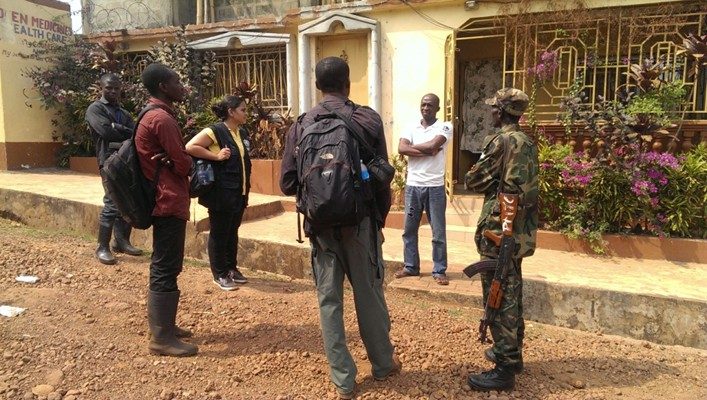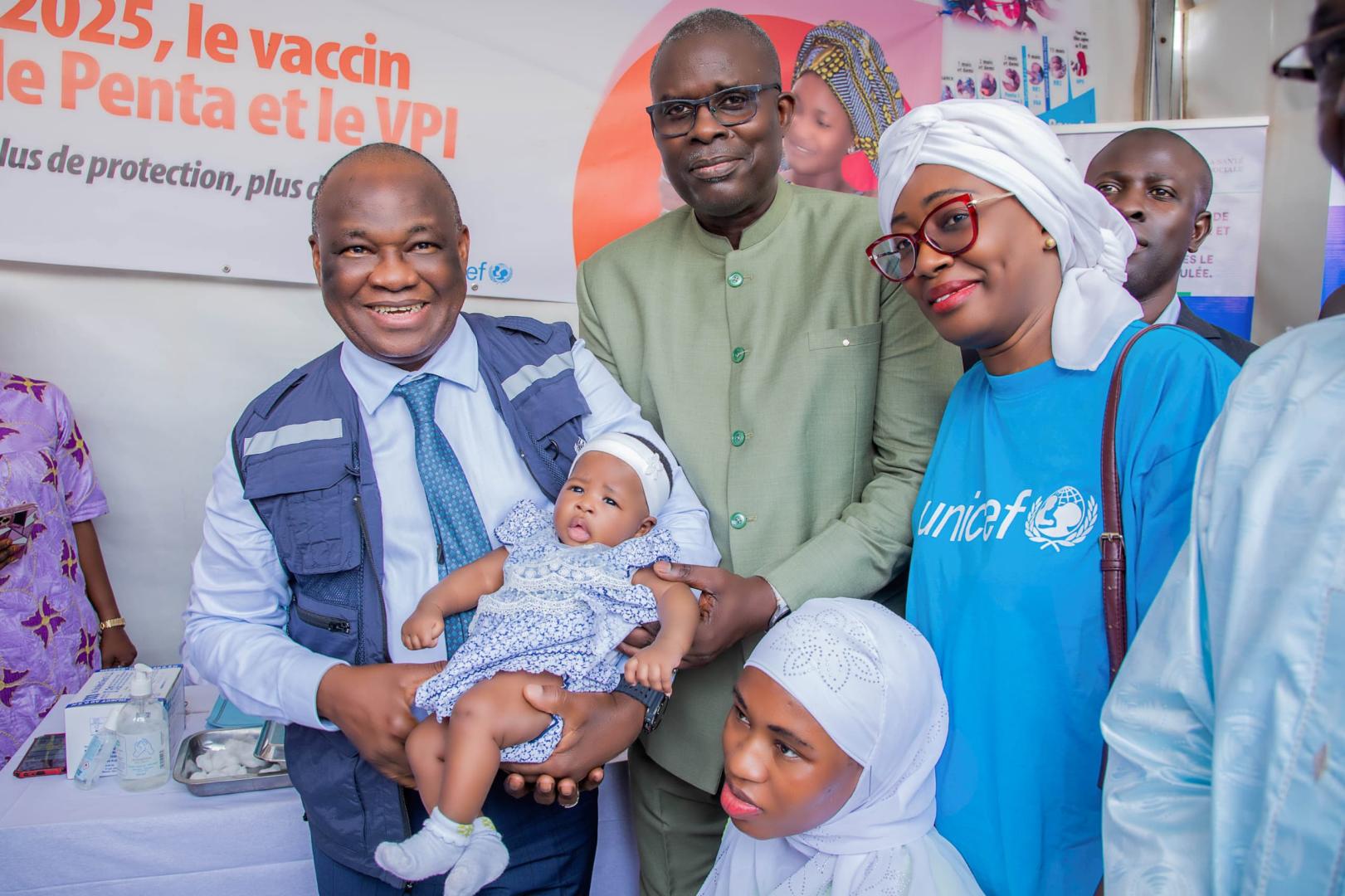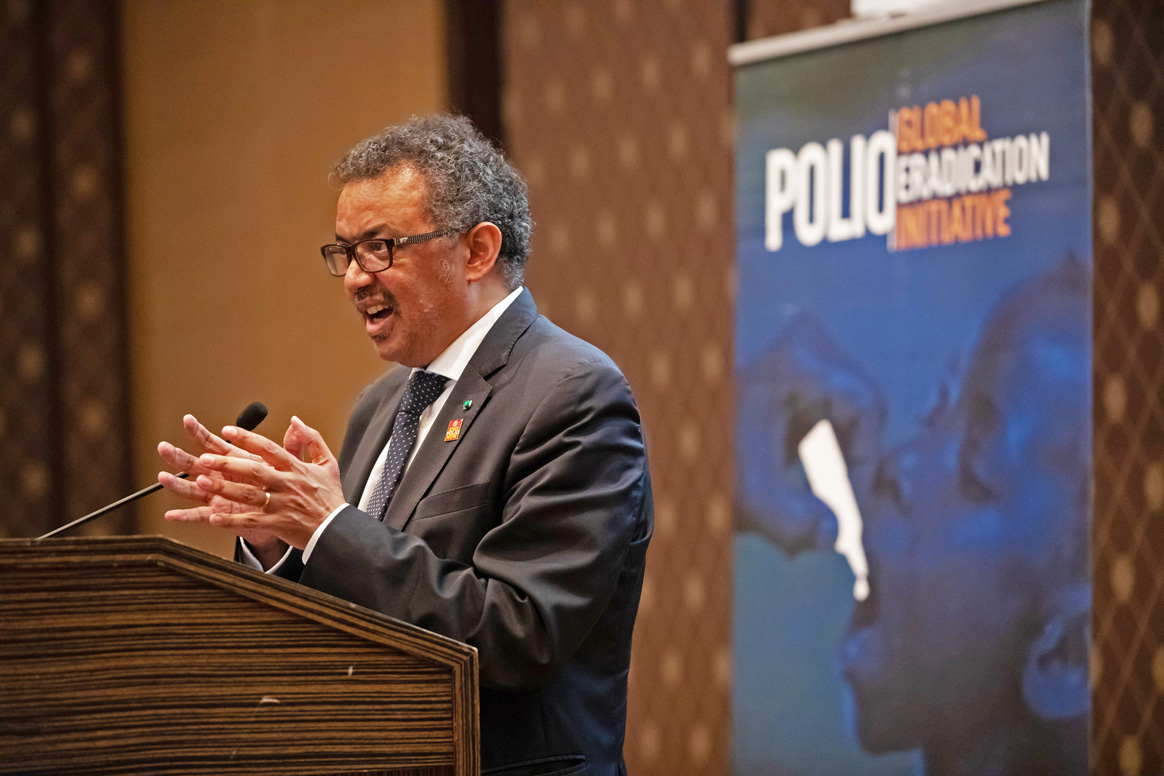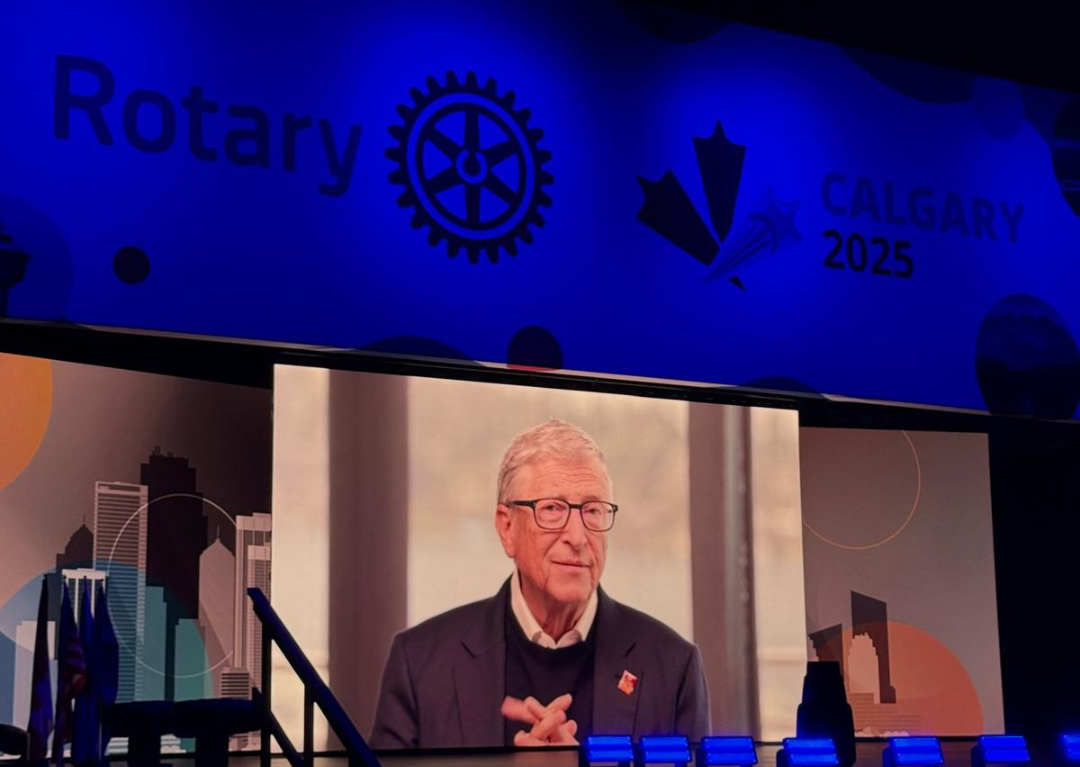
In January 2015, 26 surveillance experts from the National Polio Surveillance Programme (NPSP) in India boarded a plane that would take them to western Africa. Amongst them, Dr Deepak Kumar and Dr Aarti Singh were not only moving to work in a new and challenging country; they were also going to adapt their expertise to a fight a new disease: Ebola.
Knowing how to find a disease
The principles of disease surveillance are the lifeblood of the global polio eradication programme. Networks span entire countries, from remote villages where traditional health workers are taught to identify symptoms to cities where water sources are tested for the poliovirus. It has been this real-time, precise knowledge of the presence and patterns of the poliovirus that has enabled the reduction of polio by 99 per cent globally. India, once seen as the biggest challenge to polio eradication, became polio-free in 2014, three years after the last case in 2011.
By deploying surveillance experts from the team at the heart of this success to Liberia and Sierra Leone, the NPSP is demonstrating the much broader impact that polio staff, expertise and infrastructure can have for other health and development needs.
Applying lessons from polio to Ebola
Dr Deepak Kumar has worked in public health for 14 years, yet has never seen an epidemic that has cost so many lives as the Ebola outbreak in western Africa. Faced with a health system that was unable to deal with the needs of the population to start with, and a surveillance system still in its infancy, his role is to help bring together data collected from district levels to create a cohesive picture of what is happening on the ground so that national plans are well informed. Dr Aarti Singh is working in the Western Area of Sierra Leone to strengthen the data gathering processes that feed into the national picture that Dr Kumar is helping to construct.
Dr Singh, who has worked in public health for the last 16 years, spends her days visiting houses where there have been alerts of possible Ebola infections, to gather the information that a strong surveillance system relies on. She helps to create exhaustive lists of the contacts of infected individuals who must go under quarantine, and by working closely with local staff, can build capacity through hands-on training.
Trust is the most valued commodity for those working both to stop the spread of the virus and to gather accurate data; families must be convinced of the importance of ignoring the social stigma attached to infection that stops so many reporting cases, and of not leaving the house when under quarantine. While the government is trying to supply these households with the food and water they need, they are often in short supply, and many families are hesitant to submit themselves to 21 days without being able to work. Keeping regular contact with families helps to build their faith in health workers, and is also a chance to reinforce the hygiene habits that help to stop transmission.
Data is personal
Data collection at this level is far removed from spread sheets and number crunching. Each case is investigated personally, each person interviewed, informed, reassured, contact lists painstakingly constructed and double-checked. Only then does each case get inserted into a database, feeding up to the country level so that the response plan can be informed by accurate data. This is living surveillance, enmeshed at every turn with the lives of people struggling to recover normality following a year of the virus destabilising everything around them.
Dr Kumar is struggling with gaps where the picture is still not clear enough to inform a strong response. He has found one of the largest challenges to be the segmentation of surveillance into districts, leaving vulnerable populations along borders where the virus has continued to circulate unchecked. Drawing on his experience negotiating between micro-planning and regional overviews in India, he has encouraged neighbouring District Teams to plan in a more coordinated manner.
Building resilience
The innovations that the Indian team can bring from polio will impact more than the Ebola outbreak alone. The experts deployed from India will leave behind the legacy of a strengthened data system that will transform the current response and disease surveillance in the future. By working with health workers on the ground to representatives from the Ministry of Health, they are building capacity and strengthening resilience.
Both Dr Singh and Dr Kumar have also gained insights that they will be taking back to their work on polio in India. Most importantly, both identified the importance of being prepared for outbreaks. While no case of polio has been found in India for 4 years, the continued transmission in neighbouring Pakistan leaves children without immunity against polio vulnerable. This heightened awareness, gathered in the context of the devastation caused by Ebola in western Africa, will spur Dr Deepak Kumar and Dr Aarti Singh to maintain the strength of surveillance systems back home, to ensure that polio does not return to India. Both polio and Ebola are examples of the incredible things that can be achieved to improve health by sharing knowledge and experience across health systems.
Read more on the work of Dr Singh and Dr Kumar here.



